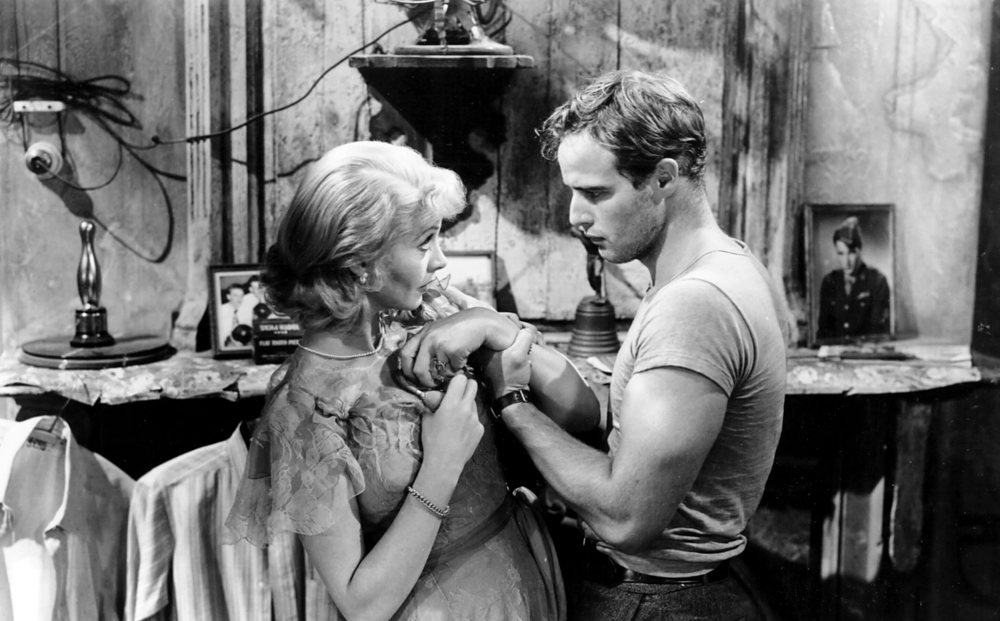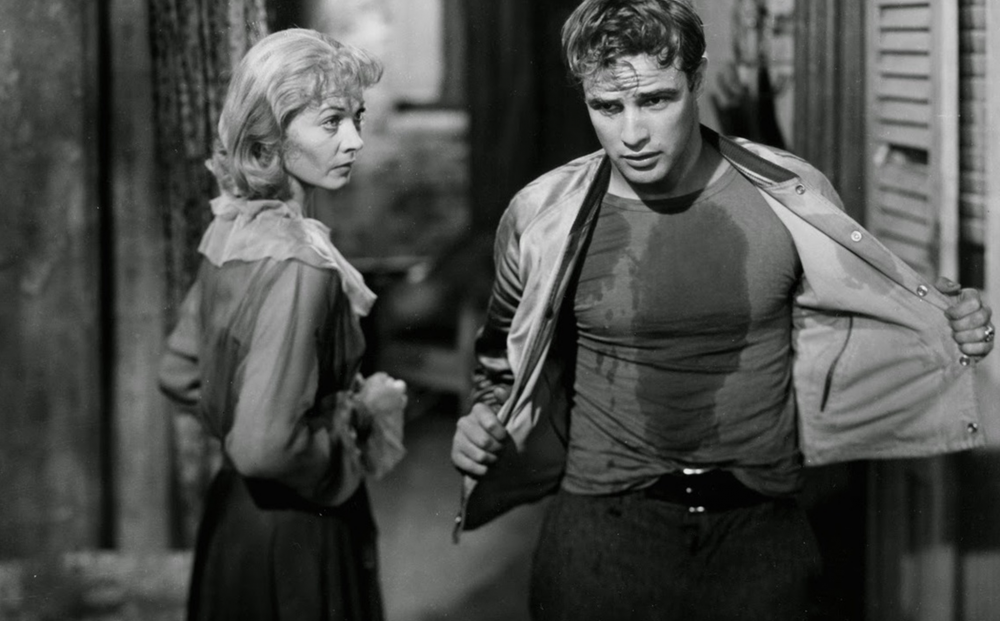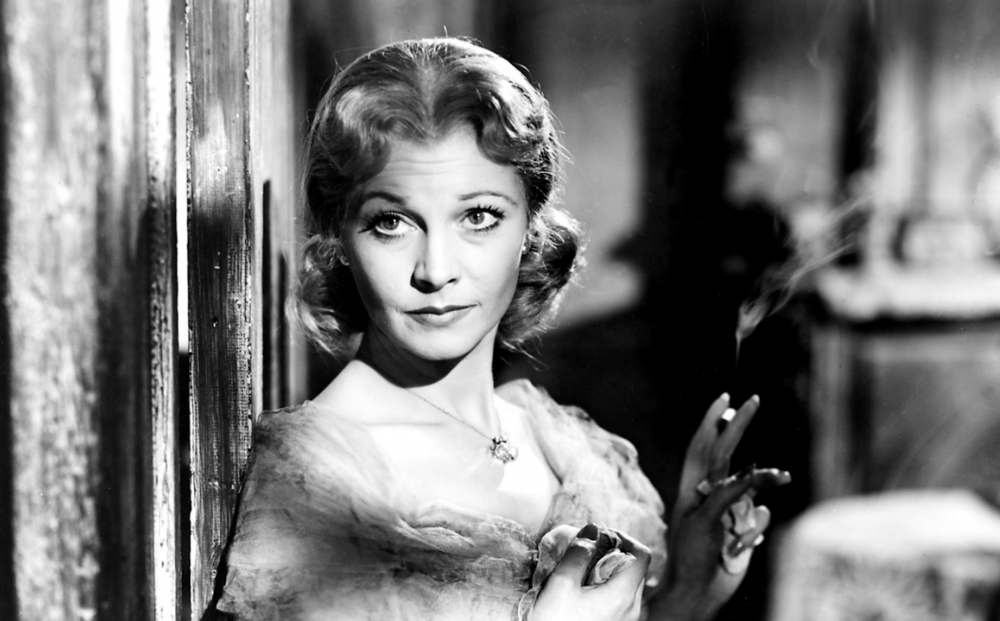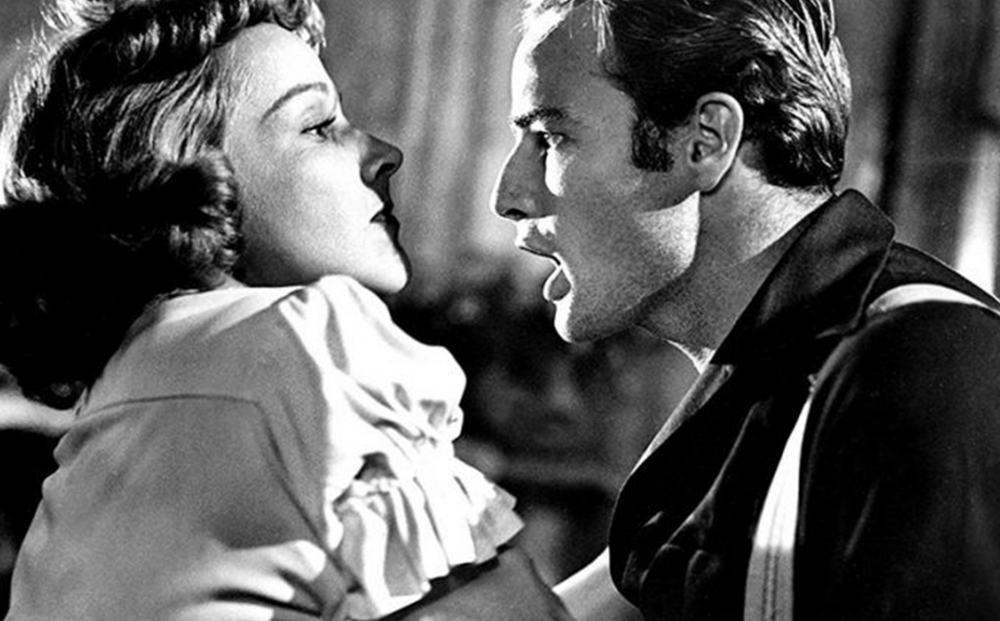A STREETCAR NAMED DESIRE
U.S., 1951
Directed by Elia Kazan
Starring Vivien Leigh, Marlon Brando, Kim Hunter, Karl Malden
Screenplay by Tennessee Williams, Elia Kazan, Oscar Saul
Approx. 125 min. DCP.
Faded Southern belle Vivien Leigh’s Blanch DuBois is destroyed by her brutish brother-in-law, Marlon Brando’s Stanley Kowalski (“two of the greatest performances ever put on film”– Pauline Kael). Kazan retained the claustrophobic setting and the principals of his own Broadway smash, plus Vivien Leigh from Olivier’s London production of Tennessee Williams’ classic. Oscars to Leigh, Kim Hunter and Karl Malden. “[Kazan’s] direction encourages viewers to have mixed feelings about both Blanche [Leigh] and Stanley [Brando], to be both drawn to and repelled by the affected, promiscuous, gallant Blanche and the ruthless, witty stud who will destroy her. But even as his director restrains him, making sure that he does not undermine Leigh or turn the film into Stanley’s story, Brando is titanic, a force of nature… The actor’s freewheeling physicality—his muscled physique in a ripped T-shirt; the looks of sexual insolence and knowing that he tosses at his victim ..was startling in 1951. Brando’s presence naturalized sexual desire and potency in ways that hadn’t been seen before, at least on this scale, in a Hollywood film. Brando embodies primal sexuality, a life force that Tennessee Williams, a sybaritic gay man, wholeheartedly believed in.” – Foster Hirsch
Reviews
“TWO OF THE GREATEST PERFORMANCES EVER PUT ON FILM!”
– Pauline Kael
“Despite the overwhelming power of Brando's performance, STREETCAR is one of the great ensemble pieces in the movies. Watching the film is like watching a Shakespearean tragedy. Of course the outcome is predestined, but everything is in the style by which the characters arrive there.”
– Roger Ebert
“Brando's performance as Stanley is one of those rare screen legends that are all they're cracked up to be: poetic, fearsome, so deeply felt you can barely take it in.”
– Lloyd Rose, The Washington Post




